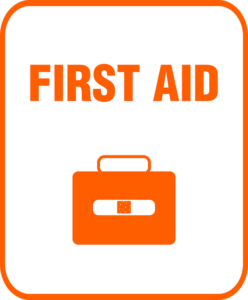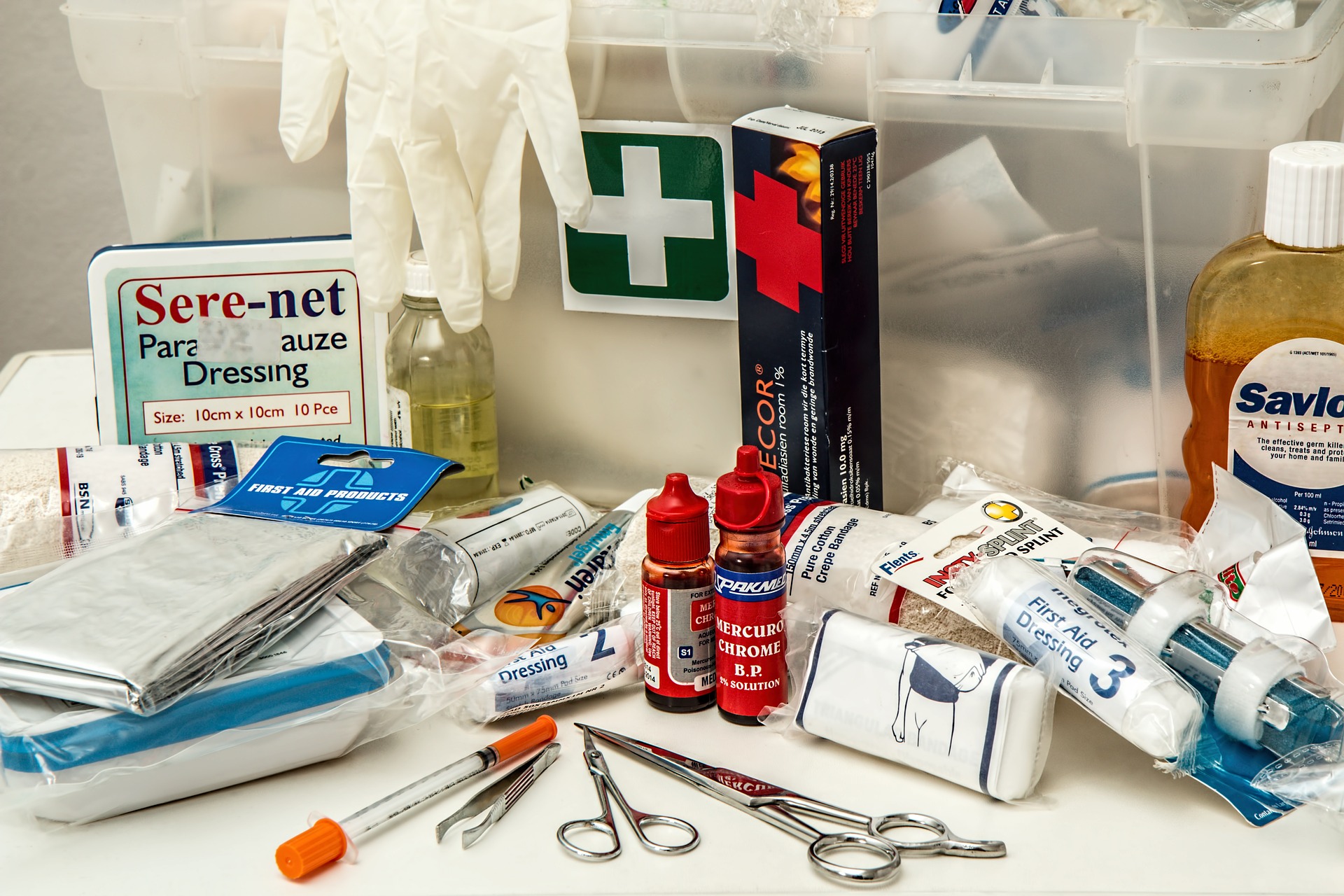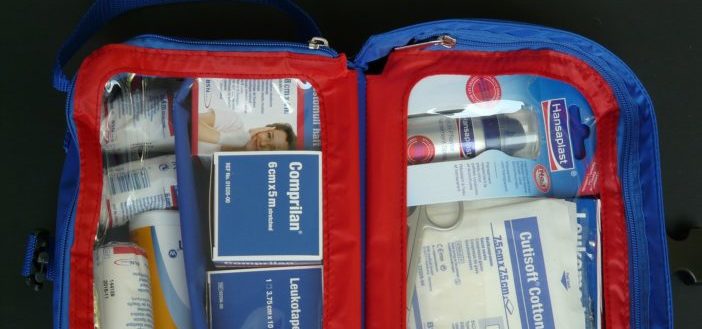It’s the season again when many families travel abroad or explore China. In my recent travel article, I listed several essentials that you need for your family’s short Chinese New Year jaunt. Today, let’s go a little further and talk about one important thing that you shouldn’t miss whenever you travel: your first aid kit.
Your kit might be small, but it can save lives. In many of my trips, I’ve seen people bury their first aid kits in their bags, or even put them in checked baggage. That’s fine, but I always think it’s wise to make your first aid kit accessible, properly placed in a front packet or pouch of your main travel bags (just like I always do).
In this edition of Doctor’s Corner, we talk to Dr. Joe Donroe of Beijing United Family Hospital. He gives us tips on what to place in your travel first aid kits, as well as other important pieces of advice.
Dr. Donroe: When traveling alone or with family, it is important to be prepared for the possibility of illness or injury along the way. Taking a class in first aid and basic life support (CPR) can be very useful, particularly if traveling to more remote areas. The following is a list of items to consider packing with you to prevent minor illness and injury from derailing your travel plans.
Fever reducer and pain control
Minor illness and bumps and bruises happen, even on vacation. Acetaminophen (Tylenol, Panadol, etc.) and ibuprofen (Motrin, Advil, Nurofen, etc.) are effective for reducing fever and helping with mild to moderate pain. If traveling with children, be sure to pack child formulations of these medications, which come in liquid or chewable forms, and follow the dosing instructions.
Diarrhea management
Diarrhea can take the fun out of any trip, especially if long car or bus rides are involved. Talk to your doctor about bringing antibiotics for traveler’s diarrhea. While most diarrhea gets better on its own (even the bacterial kind), antibiotics are indicated for severe cases with blood or mucus, fever, and when the frequency of diarrhea significantly interferes with travel plans.
Additionally, an antidiarrheal medication such as loperamide or diphenoxylate can be helpful for mild to moderate diarrhea. They should be avoided in cases of bloody diarrhea or diarrhea associated with high fever unless the correct antibiotic has already been started. If anti-diarrheal medications are used, they should be stopped in the event of worsening abdominal pain. Staying hydrated is critical and the best way to do that is with oral rehydration solution.
Cough and cold symptoms
Influenza and other viruses are still circulating at high levels in many parts of the world. Over the counter cough and cold remedies can offer some symptom relief. Keep in mind, many of these products contain acetaminophen and thus it becomes important to not take other acetaminophen products at the same time (such as Tylenol or Panadol) to avoid risk to your liver. Cough and cold remedies are generally ineffective for children and are potentially toxic to them. They are not recommended for children, particularly those under 6 years old.
Allergies
Allergies come in the form of itchy skin, rashes, nasal congestion, sneezing, and itchy eyes. Anti-histamine medications such as diphenhydramine, cetirizine, and loratadine come in adult and pediatric formulations. If you have been previously diagnosed with a severe, life-threatening allergic reaction be sure to bring your epinephrine pen.
Cuts and bruises
Injuries are common and, if not attended to properly, can progress from a mild annoyance to a significant infection. Before heading off, review your vaccine record and get your tetanus updated (once every ten years) if possible. Scrapes and cuts should be cleaned as soon as possible with soap and clean water. Antibacterial ointments such as mupirocin and compound polymyxin B can be applied to open wounds when there is concern for infection. Bring a supply of adhesive bandages of varying sizes, gauze, and medical adhesive tape to keep wounds covered and protected.

Sun safety
Sunburns not only hurt but can lead to long-lasting damage to the skin and increase the risk of skin cancers later in life. The best protection is to avoid sun exposure during peak intensity hours, maximize time in the shade, and wear a large brimmed hat, sunglasses, and protective clothing.
Covering up is particularly important for infants less than 6 months old. If sun exposure is unavoidable, use a water-resistant sunscreen that is at least SPF (sun protection factor) 30 and reapply frequently. In the event of a sunburn, cool compresses and aloe vera-based gels can provide some relief.
Mosquito safety
Mosquitoes can be a real nuisance and they can also carry diseases like malaria, dengue, and Zika. Avoid being stung by minimizing time outside during peak mosquito hours, wearing long sleeves and pants, and making sure the window screens are intact in your living quarters. Adults and children over two months should apply 20-30 percent DEET or picaridin containing mosquito repellent to exposed areas.
When applying mosquito repellent to young children, adults should spray it on their own hands and then wipe it on to the child’s exposed skin. Avoid direct application of repellents to the hands of small children (which inevitably will end up in their mouths!). If you are traveling in areas with diseases known to be transmitted by mosquitoes, consider bringing mosquito nets.
Other items for the First Aid Kit
Some other items to round out the first aid kit include bandages, tweezers, small scissors, cotton-tipped applicators, and a digital thermometer.
(Writer’s note: It would also be great to put a copy of a doctor’s prescription and a summary of your health records in the kit. You may opt for a printed one and fold it, but it might be good to consider scanning these documents and saving them into a properly named flash drive. This will be helpful in emergency circumstances, especially when these documents cannot be accessed via phone or cloud services.)
Special circumstances
Look online (links below) or check with your physician if you may be traveling to areas with endemic diseases that require medications for prevention (such as malaria) or proof of vaccination (such as yellow fever).
For individuals with chronic medical conditions, be sure to pack a sufficient supply of your prescription medications. Plan for the unexpected and bring at least 1 week more than you think you need. Avoid transporting loose pills, and be prepared to show your prescription information if asked. Certain medications, such as opioid analgesics, carry stiff penalties if transported across borders without prescriptions in hand.
Finally, sexually transmitted diseases such as HIV, chlamydia, and gonorrhea are prevalent around the world. If you might be exposed, protect yourself by bringing condoms and using safe sex practices.
Writer’s note: If your family are traveling by plane, it would be helpful to check your airline’s regulations and/or airport restrictions regarding bringing a travel first aid kit and other medical supplies. Usually, liquefied items need to be checked in or, if less than 100ml, put into a sealed and clear plastic container. For more information on that, you can visit the following websites:
– UK: http://www.fitfortravel.nhs.uk/home.aspx
– Hand luggage restrictions at UK airports, including medical supplies: https://www.gov.uk/hand-luggage-restrictions/essential-medicines-and-medical-equipment
– US: https://wwwnc.cdc.gov/travel/
– World Health Organization: http://www.who.int/ith/en/
– First aid basics: https://blog.tortugabackpacks.com/first-aid-kit-basics/
– First aid kits for travel: https://www.verywell.com/first-aid-kits-for-travel-1298980

About the Doctor

Joe Donroe, MD, MPH is a family medicine physician, at the Center for Family Medicine and Integrative Health Care at Beijing United Family Hospital.
Dr. Donroe completed his medical and public health degrees in 2007 from Tufts University School of Medicine in the US. He continued his residency training at the Yale University School of Medicine (US) and was board-certified in pediatrics and internal medicine in 2011. Dr. Donroe further specialized in addiction medicine and became board-certified in 2015.
Prior to joining Beijing United Family Hospital, Dr. Donroe was a member of faculty for the Yale Primary Care Residency Program, Co-Director of the Yale Internal Medicine Point of Care Ultrasound Curriculum, Director of the Physical Exam Clinical Skills Course for the Yale University School of Medicine, and Director of the St. Raphael Hospital Addiction Medicine Consultation Service.
Photos: Hans, stevepb, tFity via Pixabay; courtesy of Beijing United Family Hospital
This post first appeared on beijingkids.
